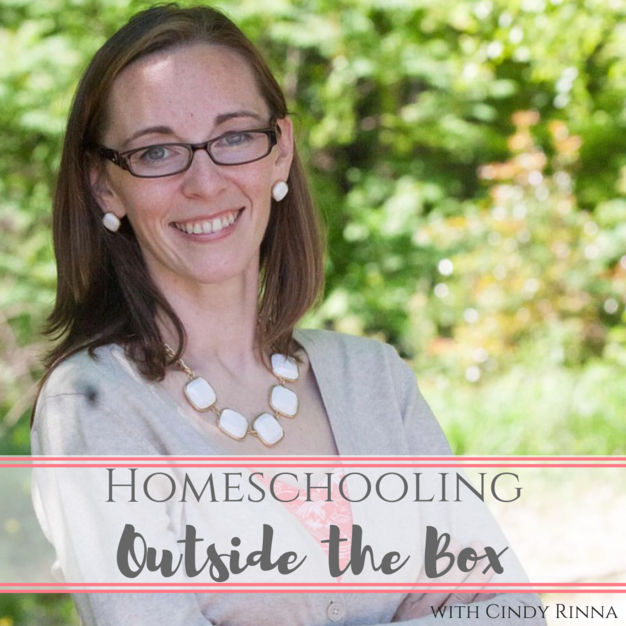
Homeschooling Outside the Box
Cindy Rinna
Homeschooling Outside the Box is the podcast that encourages and equips moms who homeschool an outside-the-box child. Join the host, Cindy Rinna, as she talks autism, ADHD, dyslexia, Charlotte Mason's philosophy, great books, therapy, special needs' friendly curriculum, and all the ups and downs of homeschooling an outside-the-box child.
- 38 minutes 33 secondsOn Christmas Cheer: December Everything
Ah, Christmas.
The lights. The music. The traditions.
The bustle. The gatherings. The Reason for the season.
Starting this month, I’ll be gifting my paid subscribers with a bundle of rhythms to help celebrate the season from month to month. They’re called “Everything” guides. If you’ve been around for a while, these are the classic everything guides reimagined and much improved ;).
In the spirit of Christmas, I’ll be giving access to everyone this month only. I hope this resource blesses you and — if you’re not already — that you’ll consider coming along next month as a paid subscriber.
I hope you find some great ideas to help you savor December and celebrate this time of year in a way that is simple and special at the same time.
Click here to enjoy December Everything.
Merry Christmas to you and yours,
Cindy Rinna
Read and subscribe on Substack
10 December 2024, 12:08 pm - 17 minutes 13 secondsOn Principles 18 & 19: The Reason EpisodePrinciple 18 & 19: The Way of the Reason
We should teach children, also, not to lean (too confidently) unto their own understanding because the function of reason is to give logical demonstration of (a) mathematical truth and (b) of initial ideas accepted by the will. In the former case reason is, perhaps, an infallible guide but in the latter is not always a safe one, for whether the initial idea be right or wrong reason will confirm it by irrefragable proofs.
Therefore children should be taught as they become mature enough to understand such teaching that the chief responsibility; which rests upon them as persons is the acceptance or rejection of ideas presented to them. To help them in this choice we should afford them principles of conduct and a wide range of fitting knowledge.
Reference: Volume 6, Chapter 9If there is one principle that could have a ripple impact on our current culture, I think it’s this one. Understanding the importance as well as the place of reason is crucial and I think it’s a gift we can give our kids, especially in their teen years.
Read it on Substack and see all the links
10 December 2024, 3:18 am - 22 minutes 38 secondsOn Principles 16 & 17: The Will EpisodePrinciple 16 & 17: The Way of the Will
We may offer to children two guides to moral and intellectual self-management which we may call ‘the Way of the Will’ and ‘the Way of Reason.’
The Way of the Will: Children should be taught (a) to distinguish between ‘I want’ and ‘I will.’ (b) That the way to will effectively is to turn our thoughts away from that which we desire but do not will. (c) That the best way to turn our thoughts is to think of or do some quite different thing, entertaining or interesting. (d) That after a little rest in this way, the will returns to its work with new vigour. (This adjust of the will is familiar to us as diversion, whose office it is to ease us for a time from will effort that we may ‘will’ again with added power. The use of suggestion as an aid to the will is to be deprecated, as tending to stultify and stereotype character. It would seem that spontaneity is a condition of development., and that human nature needs the discipline of failure as well as of success.)
Reference: Volume 6, Chapter 8“The great things of life, life itself, are not easy of definition,” Charlotte begins and true, we must ponder, ‘what is the will?’ As it concerns us here, her definition of its function is sufficient: “Its function is to choose, to decide, and there seems to be no doubt that the greater becomes the effort of decision the weaker grows the general will.”
22 October 2024, 9:38 am - 15 minutes 40 secondsOn Grief: The Interruption Episode
I’m supposed to be working on my next episode of the “Summer with Charlotte” series that I’ve been slogging through this summer these past few months but after wrestling through fits and starts in my head I realize the answer is, as usual, simple and honest, if not immediately obvious.
I can’t.
Not, I can’t ever. I just can’t yet because something has happened and writing anything before you, dear listener, know about it feels incredibly dishonest.
20 October 2024, 1:48 am - 14 minutes 20 secondsOn Principles 9 & 10: The Mind EpisodePrinciple 9 & 10: How We Make Use of Mind
“We hold that the child’s mind is no mere sac to hold ideas but is rather, if the figure may be allowed, a ‘spiritual organism’ with an appetite for all knowledge. This is its proper diet with which it is prepared to deal and what it is able to digest and assimilate as the body does food-stuffs.
“Such a doctrine as the Herbartian, that the mind is a receptacle, lays the stress of education, the preparation of food in enticing morsels, duly ordered, upon the teacher. Children taught on this principle are in danger of receiving much teaching but little knowledge; the teacher’s axiom being ‘what a child learns matters less than how he learns it.’”
Reference: Volume 6, Chapter 7Charlotte combines these two principles in one chapter and it’s pretty impressive that she felt so strongly against his approach that she calls out one particular educational guru of her day in her actual principles. So who was this guy?
18 September 2024, 3:21 am - 53 minutes 8 secondsBeyond Morning Time: A Conversation with Cindy Rollins
Cindy Rollins homeschooled her nine children for over thirty years. She is the host of The New Mason Jar podcast and a co-host with Angelina Stanford and Thomas Banks of the popular Literary Life Podcast. She also curates the “Over the Back Fence Newsletter” at MorningTimeForMoms.com. She is the author of Mere Motherhood; Morning Time: A Liturgy of Love; Hallelujah: Cultivating Advent Traditions with Handel’s Messiah; The Literary Life Commonplace books, and Mere Motherhood Newsletters.
I had the privilege of meeting Cindy at a conference here in north Alabama this past spring and I’m thrilled to share our conversation with you today. She has so much insight to offer to the homeschool community and loves to encourage moms so I know you’re going to love this episode.
Join us today as Cindy and I discuss a variety of ideas near and dear to homeschoolers’ hearts.
IN THIS EPISODE YOU’LL HEAR:- Cindy’s journey from her blog to Morning Time for Moms
- Why it’s important to encourage the next generation of homeschoolers even when it’s hard
- About the joy of learning alongside your child instead of giving in to insecurity
- Why you should give the humanities a chance even if they’re not your preference
- The importance of poetry
- Tips for the high school years with teen guys
- Ideas for a Charlotte Mason Sunday School
- How to connect with Cindy
Be sure to subscribe to my Substack to be notified of new articles.
Follow me on Instagram.
If you enjoyed this episode, please rate, review, subscribe, or share :) When you do, it helps to spread the word and encourage other moms just like you.
3 September 2024, 10:38 am - 21 minutes 33 secondsOn Principles 5-8: The Instruments of Education EpisodePrinciple 5: Three Instruments of Education
Therefore, we are limited to three educational instruments - the atmosphere of environment, the discipline of habit, and the presentation of living ideas. The P.N.E.U. Motto is: “Education is an atmosphere, a discipline and a life.”
Reference: Volume 6, Chapter 6We saw last time that there are quite a few wrong paths to take when approaching education that may be not only be our knee-jerk reaction but also taken with the best of intentions. These paths may even “work” but today Charlotte will show us a better approach. She says, “there are but three left for our use and to each of these we must give careful study or we shall not realize how great a scope is left to us.”
These are not the three measly options left over but three perspectives that open a wide lens for us to see education through and gift our child with. These three ideas together are the legs of a stool that will stand strong when used together.
Listen in to hear the three instruments of education.
Join me next time as we cover principles 9 & 10.
Be sure to subscribe to my Substack to see all the links and be notified of new articles.
You can also follow along right here on my podcast as well as on my Instagram.
If you enjoyed this episode, please rate and review :).
29 August 2024, 1:11 am - 34 minutes 14 secondsOn Principles 3 & 4: The Posture Episode
This is the third article in my “Summer with Charlotte” series. If you missed the first two, you can read On Education and On Principles 1, 2 & 20.
Let’s jump in.
Principle 3: Authority and DocilityThe principles of Authority on the one hand and Docility on the other are natural, necessary, and fundamental.
Principle 4: The Sacredness of PersonalityThese principles (i.e. authority and docility) are limited by the respect due to the personality of children which may not be encroached upon whether by the direct use of fear or love, suggestion or influence, or by undue play upon any one natural desire.
Join me next time as we cover principles 5 - 8.
Be sure to subscribe to my Substack to read the article, see all the links, and be notified of new articles.
You can also follow along on my podcast, Homeschooling Outside the Box, and my Instagram.
If you enjoyed this episode, please rate and review :).
3 August 2024, 2:04 am - 24 minutes 28 secondsOn Principles 1, 2 & 20: The Defining EpisodePrinciple 1: Children are Born Persons
“No sooner doth the truth…. come into the soul’s sight, but the soul knows her to be he, first and old acquaintance.”
“The consequence of truth is great, therefore the judgment of it must not be negligent.”
Reference: Volume 6, Chapter 2Here Charlotte quotes Benjamin Whichcote, who was the founding father of Cambridge and a puritan divine (an archaic word for theologian). I won’t attempt to unpack his words but I will say that with these quotes she is setting the stage to highlight the importance of truth and its inseparable affiliation with the soul.
To understand Charlotte’s first principle you have to know who she was talking to. The Victorian era may have been coming to a close by the time she published A Philosophy of Education, but she originally said this in her first Home Education volume and was very much talking to Victorian educators and parents.
To say a child was “born a person” carries a distinction that we take for granted today. Of course a child is born a person, we think. What else would he be born as? “But truths get flat and wonders stale upon us,” Charlotte said and isn’t that right? We read our bibles every day and skim the details, “yes, yes…the garden, the flood, the gospel, and so on…” but take the gravity of that truth lightly and while small children wonder at the world around them we stroll carelessly past a robin’s nest. How quickly we breeze past what is too familiar.
9 July 2024, 2:11 am - 26 minutes 5 secondsOn Education: The Charlotte Mason Episode
Where do I even begin?
For the better part of twelve years I have been writing (and reading and podcasting and speaking) about Charlotte Mason. I’d like to think I’ve hit that 10,000 hours expert level of knowledge about her but truth be told there is still much to learn. I’m being totally serious when I say Charlotte is in my top five people who I want to meet in heaven. I intend to have many a tea time with her discussing great books.
It seems the more you know about something the harder it is to condense that information into something tangible and simple. Something about not seeing the forest for the trees comes to mind and her philosophies have become so beautifully interwoven with our life that it’s hard to separate it out when someone asks about how we homeschool.
What is the Charlotte Mason method? Is it narration? Picture study? Music? Going outside? Good books? Yes, but….
Who was Charlotte Mason? A British educator who revolutionized the system in her time but has been all but lost to history and looked over by modern “progressive” educators? Yes, but….
Her legacy, or rather, the legacy of her educational philosophy, is so much more.
Her philosophy of education was so influential that it transcended the realms of the Victorian classroom and has been entrusted to homeschoolers and small private schools today. It traveled across the pond from lovely Ambleside in the Lake District to my beloved United States and all the way into my home in north Alabama.
How?
Listen in to find out
28 June 2024, 1:02 pm - 18 minutes 53 secondsOn Nature: The Great Outdoors Episode
“Never be within doors when you can rightly be without.”
It’s one of the first Charlotte Mason adages I learned by heart. I use it all the time to this day. I bet it’ll be one of those sayings my kids will remember when they’re fifty and say with a smile - albeit a slight roll of the eyes - “my mom was always saying…” and I’m so happy to think that.
When God made humans, He put them in a garden. Not a house, not a cubicle, but out of doors. We were not created to be inside as much as we are. You hear about “new” ways to be healthy like green therapy or beach yoga and it’s important to remember that getting outside is not something we are adding to civilization; it’s something we need to return to.
SHOW NOTES:
9 June 2024, 10:42 pm - More Episodes? Get the App
Your feedback is valuable to us. Should you encounter any bugs, glitches, lack of functionality or other problems, please email us on [email protected] or join Moon.FM Telegram Group where you can talk directly to the dev team who are happy to answer any queries.
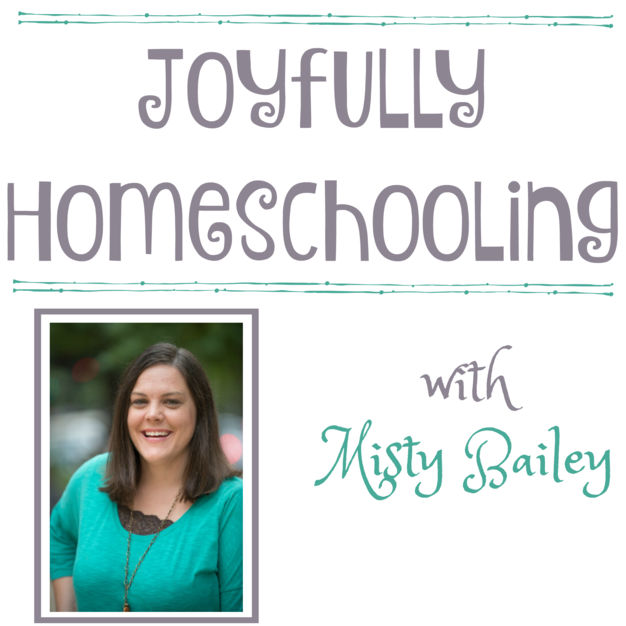 Joyfully Homeschooling
Joyfully Homeschooling
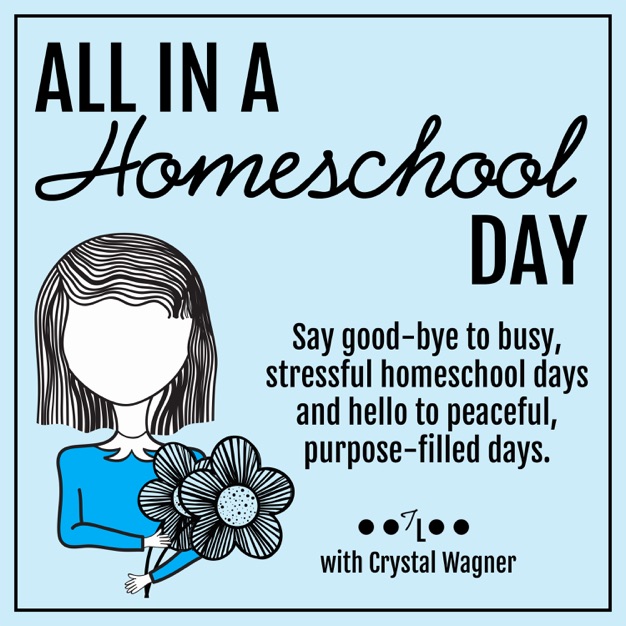 All in a Homeschool Day
All in a Homeschool Day
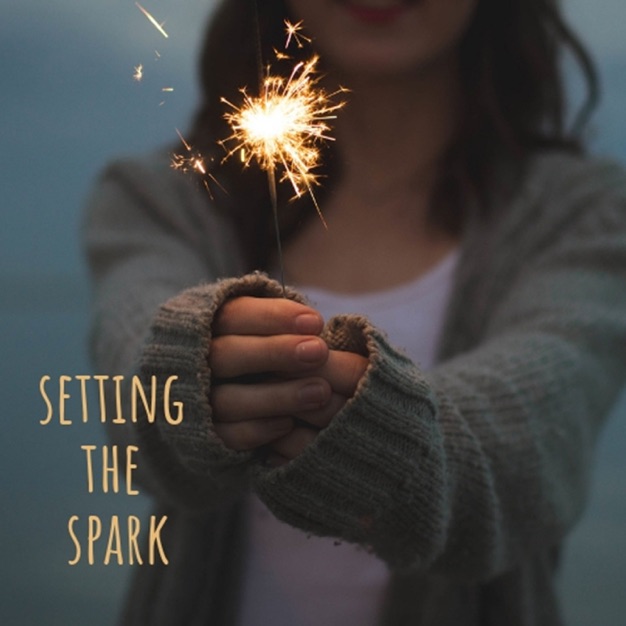 Setting the Spark
Setting the Spark
 Homeschooling with Grace
Homeschooling with Grace
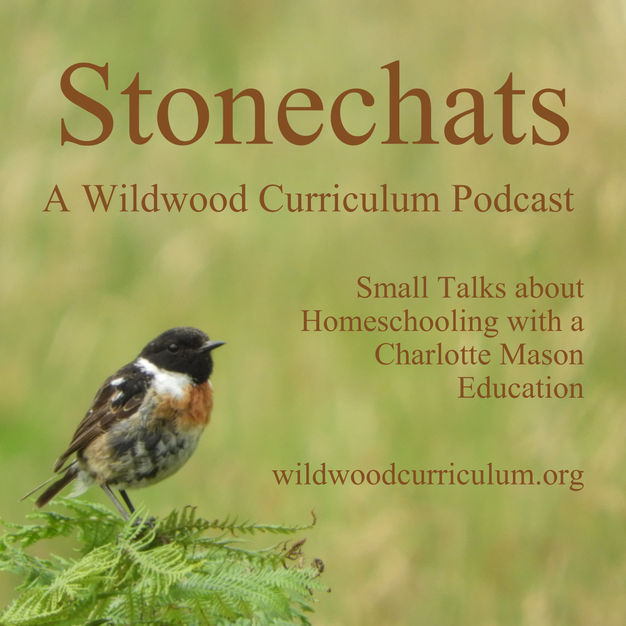 Stonechats from Wildwood Curriculum
Stonechats from Wildwood Curriculum
 Thinking Love
Thinking Love